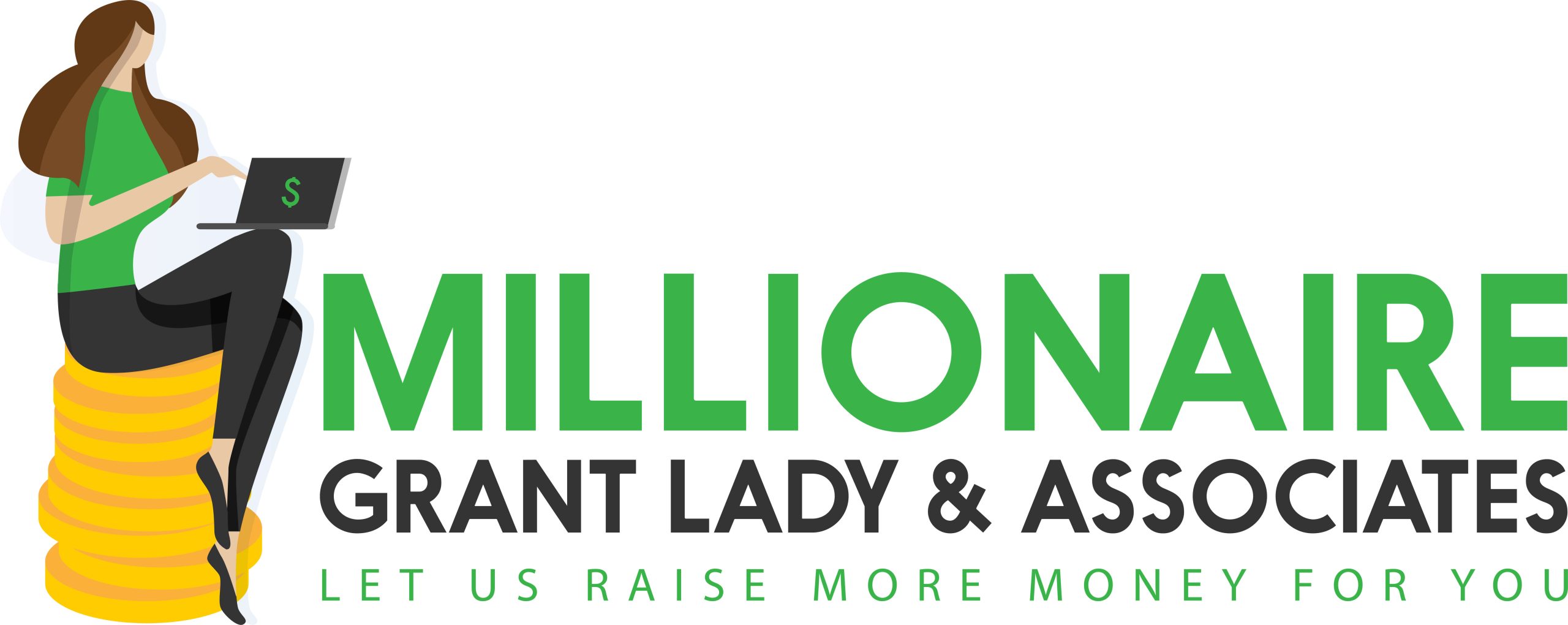Nonprofits have a tough job—they have to identify a distinct need in their service area, find a unique way to address that need, and then obtain the resources required to provide meaningful services.
Foundations that provide grant dollars also have a tough job. They have to sift through many very worthy applicants to determine who should receive grant funding. This responsibility can be a heavy burden.
In our work with nonprofits of every shape and size, we have worked with some really talented people who understand and can convey the deep needs of their community and how their organization meets those needs.
We have also worked with some nonprofits that benefit from support in learning how to tell their stories and explain how their work matters.
Millionaire Grant Lady and Associates has helped nonprofits earn more than $100 million in funding. Read our article here about our 2023 successes. Our founder, Alex, has also spent time on grant review boards, which gives her unique insight into what it takes to create successful grant proposals that increase revenue for organizations.
Are you looking for an expert partner to develop grant narratives that really tell your story and connect with funders? Contact us to see how we can help.
In this series, we are covering some of the most common mistakes organizations with grant writers make and how to fix them so you can earn more money for your mission. Did you miss part 1? You can read it here.
In this article:
- Mistake 2: Grant writers shouldn’t focus on minor distinctions within your work
- What is the purpose of a grant proposal?
- In a grant proposal, don’t the details of my program matter?
- Pro tip #2: Don’t get too hung up on the minor details of your program.
- Conclusion
Related articles:
- Before you use AI to write grants, make sure you know these 4 things
- 6 things to consider when hiring a grant writer
- Getting a foot in the door with a big funder
Common Grant Writing Mistake: Not Focusing On What the Funder Cares About
Let’s talk about ovens for a minute.
There are many different types of ovens. For example, a convection oven, electric oven, and gas oven are all popular types of ovens. Each oven cooks slightly differently and has its own benefits and drawbacks.
In my lifetime, I have known many people who felt strongly about having one kind of oven over another. I have, in fact, sat through many sessions where a friend or family member raved about their new oven. The fact that I have had more than one conversation about an oven tells me I am no longer in my 20s.
Maybe you also have strong feelings about convection or gas ovens. Or maybe you don’t care because an oven is an oven.
Common Pitfall: Forgetting the Grant Proposal’s Purpose
Imagine your organization wants to purchase an oven that will be used within your community food program that feeds families and children living at or below the poverty line.
Now let’s imagine that you are preparing a grant proposal to a foundation so that you can purchase an oven for your community food program. Let’s consider the purpose of your grant application: to inspire a foundation to give you money.
In this grant proposal, you will most likely be limited in the number of words you get to explain your program and its impact. If this is the purpose of the application—inspiration—what should you spend your words on?
A: Details related to your oven purchase
B: Details about how you will reach and welcome hungry children and families in your community
Unless you are writing to the Foundation for the Advancement of Convection Ovens, you should probably focus on B: the impact of your program on children and families. Every word that you spend explaining the oven, which kind you will buy, and why it is better than another type of oven is one less word that you can spend explaining the impact of your program.
In a grant proposal, don’t the details of my program matter?
The answer to this one is yes… but also no.
After reading your proposal, a foundation needs to have a clear understanding of your program, and they need to understand your capability and competency to carry out the program. They need to have faith that you can achieve the results you say you will.
But just because they need to understand your program does not mean that they need a play-by-play of every single detail of your program.
The foundation is asking for the highlight reel—focus on what makes you unique and your impact. They want to know why they should invest in you. Include details that help show them why you are a great investment.
Pro tip: Don’t too hung up jargon or minor program details
We often see organizations spend a lot of words explaining small distinctions within their programs, but this isn’t what the foundation is looking for.
They want to know the impact of your program. The question organizations must answer in their proposal is how the program will meet a real need within the community.
Your application should focus on showing how your organization meets a critical community need.
Closing Thought: Distance Helps Submissions
Sometimes, grant writers who are too close to the nonprofit’s work can lose sight of the big picture. While small distinctions within your programs are absolutely important for your nonprofit, a grant application should focus on the big picture of your program.
- Who do you serve?
- How do you serve them?
- What is your impact?
By focusing on these things, your proposal will connect more with your foundation reader and move you closer to getting the funding you need to carry out your important work.
Need Help? Let’s Talk
Not sure how to sell your organization to potential funders? We can help! Schedule a consultation call to see how we can support your organization so you can get more funding for your mission.



